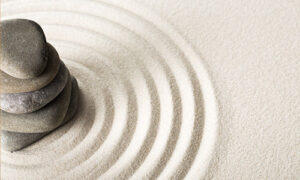
Behaviour is the manner by which we express ourselves and can be influenced by factors including the environment around us, relationships, pain, discomfort and our emotions.
Sometimes it can be shown in a way that can put the person themselves or others at risk or impact on being able to join in with every day activities.
If a person has limited ability to express themselves or those around them are unable to understand what is being communicated, this may lead the person to try to communicate their needs in other ways. These behaviours may include: verbal and physical aggression, destruction, self injury and withdrawal.
If there is any change in a person’s behaviour it is important to rule out if the cause is related to pain or an underlying health condition.
It is helpful to understand what else can trigger behaviour changes. Recording these events can often help identify other possible causes. This can be done on a chart called an ABC (antecedent, behaviour, consequence) It is very useful to start doing this whilst waiting to be seen by a specialist team.
How to complete an ABC chart
| Antecedent
What happened before? Location, activity, people |
Behaviour
Describe what you saw |
Consequence
What did you do/ how did the person react? |
Record the things that happened BEFORE the behaviour, such as
|
Record a detailed description of the actual BEHAVIOUR (what did it look like?)
Eg he ran out of the living room, stood in the kitchen door doorway and punched his head with his right hand for approximately 1 minute. |
Record the CONSEQUENCES of the behaviour. (what happened AFTER)
Did the person’s behaviour result them in gaining anything they did not have before eg attention from something (positive or negative): an object, food or drink, or escape from an activity or situation? |
Here is guidance on how to complete an ABC effectively:
Good and bad examples of ABC recording
| Date/time | Antecedent
Location, activity, people |
Behaviour
Describe what you saw |
Consequence
What did you do/ how did the person react? |
| Bad example
Monday - am |
Asked Tom to clean up a drink he had spilt | Temper tantrum | Told off |
| Good example
Monday 06/11/2019 9.15am |
Tom got up late and the bus was waiting for him, radio was playing, toast was burnt.
John asked Tom to finish his breakfast. Tom spilt his drink John asked Tom to clean up the mess. |
Tom looked confused: he made a loud grunting noise and grabbed John’s glasses. | John shouted ‘No’ loudly and asked Tom to stop.
Tom ran out of the kitchen crying. |
Using medication
 Historically, medication has been given to control behaviour. These medications are right for some people and can help them to stay safe and well, but sometimes there are other ways of helping people.
Historically, medication has been given to control behaviour. These medications are right for some people and can help them to stay safe and well, but sometimes there are other ways of helping people.
STOMP stands for stopping over-medication of people with a learning disability, autism or both with psychotropic medicines. It is a national project involving many different organisations which are helping to stop the over use of these medicines. STOMP is about helping people to stay well and have a good quality of life.
It is not safe to stop making medication or changing the dosage without help from a doctor.
Relaxation
 Relaxation is one way to reduce the feeling of stress and anxiety.
Relaxation is one way to reduce the feeling of stress and anxiety.
Some techniques that may help are:
- To help you relax you could try:
- Deep breathing
- thinking of a place that makes you feel calm
- doing things you enjoy
- relaxing your muscles.



